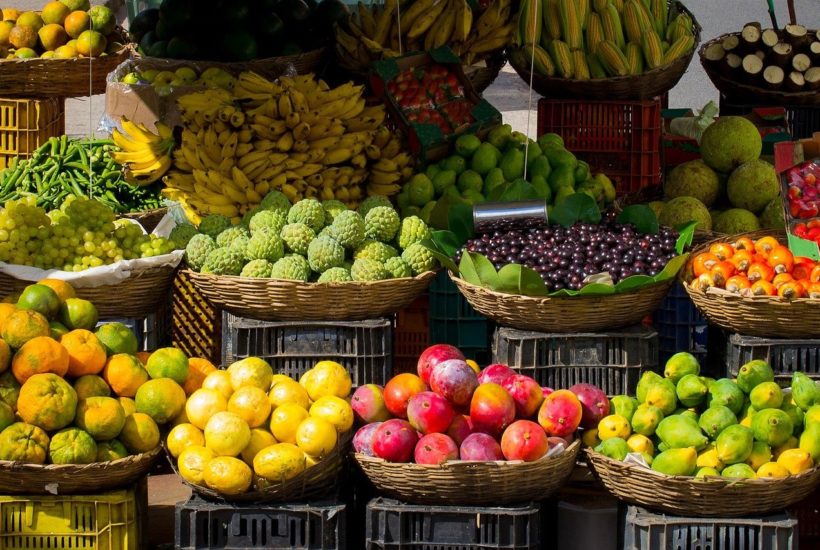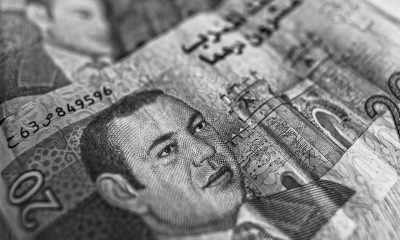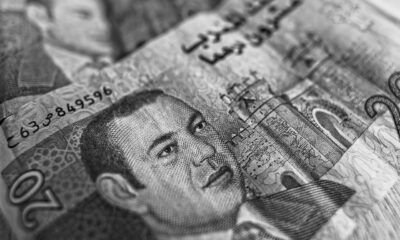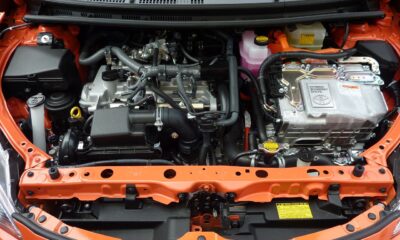Africa
The Wholesale Trade is Recovering in Morocco
87% of the wholesalers expected that their sales volumes would not suffer in the first quarter of 2022. And that is apparently what happened. As a result, wholesalers, who are on an upward trend in their business, are optimistic for the rest of the year. Not at all disturbed by the Russian-Ukrainian war, they think that their activity will soon find a real dynamic.

Good news: the wholesale trade in Morocco is not too disturbed by the Russian-Ukrainian war! That explains why wholesalers’ expectations for the first quarter of the year 2022, which has just ended, have, by and large, come true, and why professionals are rather confident for the rest of the year.
Indeed, according to the expectations of wholesalers, which emerge from the quarterly survey of the High Commission for Planning (HCP), 69% of them expected a stable overall volume of their sales during the first quarter of 2022 and 18% to an increase over the same period. In other words, 87% of wholesalers expected no damage to their sales volumes.
In the end, the increase in sales was achieved by professionals in the “Wholesale of information and communication equipment” and “Other specialized wholesale”. On the other hand, professionals in the “Wholesale of other industrial equipment” recorded a decline in their sales in the first quarter of 2022. However, the expected orders were at a normal level.
Read more on the subject and find the most important economic news from around the world with the Born2Invest mobile app.
75% of wholesalers have returned to normal order levels
In fact, 75% of business leaders expected this, while 15% thought it would be below normal. That said, in terms of employment, 70% of wholesalers expected staff numbers to remain stable, compared with 27 who were convinced that staff numbers would increase. In other words, even though 28% of business owners expected to have to manage with a difficult cash flow, the recovery is indeed here. “Our business is not much affected by the war in Ukraine.
“Most of the equipment we sell comes, in general, from the Asian continent where there is another threat lurking, namely the risk of closure of the port of Shanghai because of the Covid-19 raging in this city,” said in particular Mohamed S., a wholesaler in computer equipment, who preferred to remain anonymous. Indeed, because of the resurgence of Covid-19 cases in this Chinese city, the authorities have started to confine the city. But the port of Shanghai, the world’s largest commercial port in terms of container traffic and tonnage, is not in danger of being closed.
Because, “if Shanghai were to shut down completely, many international cargo ships would find themselves [waiting] in the East China Sea and this would have an impact on the entire national economy and the world economy,” it is explained.
…Despite a slight price increase
So international transport via the port of Shanghai will continue, as will the recovery of wholesale trade. Moreover, professionals are optimistic for the rest of the year, a period when they almost all think that their activities will regain a real dynamic.
In any case, wholesalers are far from the difficulties they experienced in the 4th quarter of 2021 when 14% recorded a decline in sales, against 29% of them who experienced an increase in sales. The increase in sales was particularly recorded by professionals in “Wholesale of other industrial equipment”, “Wholesale of household goods”, “Wholesale of raw agricultural products and live animals,” and “Other specialized wholesale (fuels, ores and metals).”
Employment was stable for 79% of business owners. Inventories of goods were also at a normal level and the trend in selling prices was up according to 42% of wholesalers.
Vegetable prices are rising again
At the beginning of the holy month of Ramadan, vegetable prices are back on the rise in wholesale markets, and by ricochet in retail markets. This is what reveals the mercurial prices of vegetables of Wednesday, March 30th, provided by the MAP.
It shows that the potato is 5 or 6 DH per kilogram, the onion (7-8 DH/kg), the tomato (10-12 DH/kg), the bell pepper (8-10 DH/kg), the carrot (4-7 DH/kg), the eggplant (6-7 DH/kg), the cucumber (5-8 DH/kg), the zucchini (9-11 DH/kg), the cauliflower (6-9 DH/kg), the cabbage (3,5-8 DH/kg), the bean (13 and 15 DH/kg).
__
(Featured image by tookapic via Pixabay)
DISCLAIMER: This article was written by a third party contributor and does not reflect the opinion of Born2Invest, its management, staff or its associates. Please review our disclaimer for more information.
This article may include forward-looking statements. These forward-looking statements generally are identified by the words “believe,” “project,” “estimate,” “become,” “plan,” “will,” and similar expressions. These forward-looking statements involve known and unknown risks as well as uncertainties, including those discussed in the following cautionary statements and elsewhere in this article and on this site. Although the Company may believe that its expectations are based on reasonable assumptions, the actual results that the Company may achieve may differ materially from any forward-looking statements, which reflect the opinions of the management of the Company only as of the date hereof. Additionally, please make sure to read these important disclosures.
First published in Les Eco.ma, a third-party contributor translated and adapted the article from the original. In case of discrepancy, the original will prevail.
Although we made reasonable efforts to provide accurate translations, some parts may be incorrect. Born2Invest assumes no responsibility for errors, omissions or ambiguities in the translations provided on this website. Any person or entity relying on translated content does so at their own risk. Born2Invest is not responsible for losses caused by such reliance on the accuracy or reliability of translated information. If you wish to report an error or inaccuracy in the translation, we encourage you to contact us.

-

 Crypto2 days ago
Crypto2 days agoBitcoin Surges Toward $110K Amid Trade News and Solana ETF Boost
-

 Fintech1 week ago
Fintech1 week agoMuzinich and Nao Partner to Open Private Credit Fund to Retail Investors
-

 Crypto5 days ago
Crypto5 days agoBitcoin Traders on DEXs Brace for Downturn Despite Price Rally
-

 Business2 weeks ago
Business2 weeks agoDebt-Fueled Markets, Zombie Corporations, and the Coming Reckoning
























